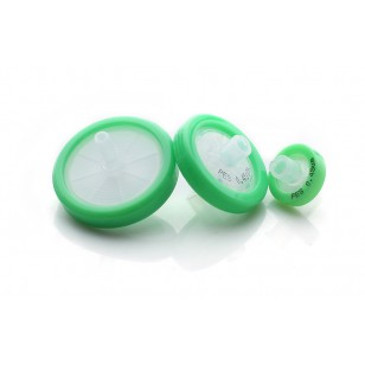Technological advancements have made life easier in several ways. It wouldn’t be wrong to say that even a small change in the way a certain tool can be used will help in saving a lot of time and effort that can be productively employed elsewhere.
This is perhaps the thing with Syringe Filters that is not only making them increasingly popular in their usage but also improving the process of filtering out contaminants from various liquids used in the biotechnological industries.

A syringe filter is typically a wheel shaped filter with a plastic body. The membrane is the filter is designed to effectively purify various industrial and laboratory use liquids and gases such as nucleic acids, proteins, enzymes and peptides. Apart from biotechnology based industries, the syringe filters have their application in pharmaceutical, Food and Beverage, Environmental and general laboratory industries. The syringe filters have also found their use in HPLC sample preparation, routine QC analyses, food analyses and for analysis of environment and bio fuels.
The PES Syringe Filters, in particular, are certified for ion chromatography and tissue culture filtration along with purification of contaminants as mentioned above. There are various other types of syringe filters, each distinguished based on the type of membrane and are more appropriate accordingly for specific types of fluids or liquids. The syringe filters come in various pore sizes and can have membranes made from either hydrophilic or hydrophobic materials. The most common types of membranes used in syringe filters are Polypropylene, Nylon, Mixed cellulose, PTFE and PES. The type of filter membrane that you will need depends on the nature of the solvent or substance that you are looking at purifying.
Most aqueous substances can be filtered using nylon membrane filters which are hydrophilic in nature. Then there are the mixed cellulose ester membrane filters that are considered ideal for filtering sensitive biological solvents and solutions.
The protein samples or liquids require use of low protein binding filters such as the polyvinylidene difluoride (PVDF) or Polyethersulfone (PES) membranes. These are hydrophilic in nature and are hence considered appropriate for use in ion chromatography. When it comes to purification of non-polar solvents, hydrophobic membranes are required. Polytetrafluoroethylene (PTFE) syringe filters can be ideal in this case. This is a chemically resistant polymer and it is hence apt to be used for removing contaminants from highly corrosive solvents.
There can also be glass fiber filters that can be required when purifying solvents that need a stringent purification process. Used for tissue culture and for removing larger contaminants, these syringe filters can easily remove viscous substances with ease. These types of filters have another more common usage – these filters are used for identifying the presence of smoke in air and for monitoring air pollution.


